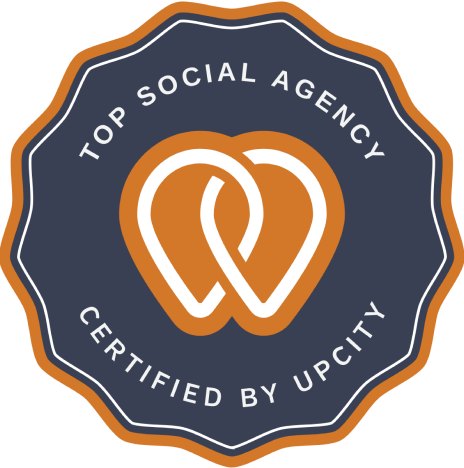You probably know that having a successful blog is crucial for the success of your business. Blogs help build credibility, increase the chances of being found online (SEO), and allow you to share your expertise on multiple platforms. However, posting quantity over quality is a big no-no.
Many business owners start a blog and feel pressured to get new, fresh content created and posted for customers. However, the key to the success of any online blog lies invaluable, targeted content that is fully optimized for SEO. SEO is your greatest tool and in this article, we will explain how and why your blog content needs to be optimized for SEO to help your business grow in 2022 and beyond.
SEO-Focused Content Helps Your Blog Rank Higher in Search Results
SEO tactics involve using the keywords that customers usually use in their search in order to look for a product or a service. When you make sure that your content contains these niche or highly-searched keywords, your blog will rank higher in search results. This means that your blog will have better exposure among targeted customers who are looking for this particular kind of information or content. When customers search for your content, it is much more valuable to them and you will see your blog get higher engagement as a result.
SEO & Keywords/Keyword Density
SEO is not just about using keywords related to your business within your content but the right keywords! You want to be at the forefront of what relevant searches your customers are looking up in search engines. The main goal of focusing on increasing SEO is to help customers and prospects find what they are looking for when they search for relevant content. There are so many SEO tools you can use to help you find keywords, long-tail keywords (niche keywords), and collect other important data you can use for your SEO strategy.
You don’t want to stuff your content with keywords but focus on placing relevant keywords throughout your blog that allows people to find your brand with organic search in the most natural way possible. It can be so irritating for customers to find a blog article that is just stuffed with keywords and contains no real valuable information. You’ll also most likely be penalized by Google for “keyword stuffing.” Focus on keeping your content genuine and informative, while containing keywords that are relevant to your brand. A general rule of thumb is to include 2 keywords in about every 100 words of your blog post.
SEO Blog Content Is Your Greatest Investment
The cost of optimizing your content for SEO by an expert is relatively low compared to the amazing benefits you reap later on. When you choose to optimize your blog for SEO, you are creating an opportunity to be seen and exposed to a larger number of customers who are willing to purchase your products and your services. This will create an ongoing channel of conversions to your website that will actually generate revenue just for a little amount of money you paid at the beginning.
9 SEO Blog Optimization Tips
Here are some SEO blog optimization tips and tricks to help you better be seen and heard online!
1. Relevance
A somewhat obvious one, you don’t want to be writing content that is not relevant to your brand! Stay focused on your SEO goals and keep relevance at the forefront of your strategy.
2. SEO Blog Keywords vs. Long-Tail Keywords
You don’t want to include extremely general keywords that have hundreds of thousands of search volume statistics. It’s going to be difficult to be seen and heard in the sea of search engine competition for that keyword. Focus on some niche keywords, or long-tail keywords, that are extremely relevant to your business, yet don’t have a lot of search volume results – begin using those in your content.
3. Headings
Search engines pay attention to headings! They look for your keyword in H2 and H3 headings. Search engines also look for content sectioning. You won’t rank very highly if every blog of yours is a big block of copy. Use H2 and H3 headings to your advantage. One of our favorite tips is to write the headings before writing the body copy. Then, you will stay focused on sections of copy and it will help you stay relevant throughout your blog.
4. Alt Tags
You can create alt tags for all of your images. Be sure to be extremely descriptive, use a keyword, and stay relevant in your alt tag descriptions.
5. Meta Title & Description
A very important aspect of SEO – your meta title and description. This is what will show up when people search for a relevant keyword and you pop up on Google. Be sure to have a keyword in your blog’s title and meta description to help increase your ranking for that keyword.
6. Permalink
The permalink is the URL for your blog. Typically, you want to include a keyword in your permalink somewhere. You can update and customize permalinks in the admin backend of your website when inputting your blog.
7. Internal and External Links
Including internal links to other pages of your website helps your visibility in search engine results. Additionally, linking to external sources that are trusted, relevant, and have a high authority online. For example, if a dentist’s office wrote a blog linking to a study done by the American Dental Association, this would be beneficial for their SEO.
8. Word Count
Search engines pay attention to your word count! WordPress recommends that blogs be 300 words in length or more. This increases your authority and helps your blog appear informative.
9. Fresh, Reader-Friendly Content
Old content typically gets pushed back in search results because Google praises new, fresh content. If you’ve updated your blog content on a blog within the past year, you’re golden. Additionally, if you have run-on or long sentences, it may be deemed difficult to read. Google wants to show content that is reader-friendly. So, it’s definitely worth taking a second look at your blog to ensure it is reader-friendly for customers.
If you liked this Symboliq blog article, you may also like:
–what to expect during the symboliq media branding process
–You Know It’s Time for a Website Content Refresh When…






